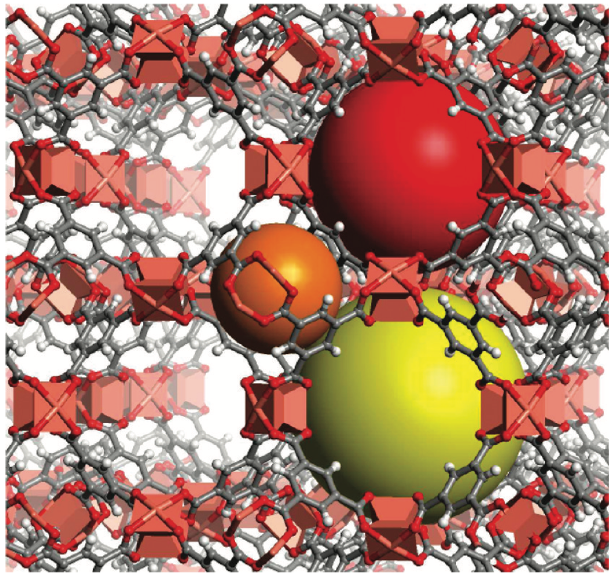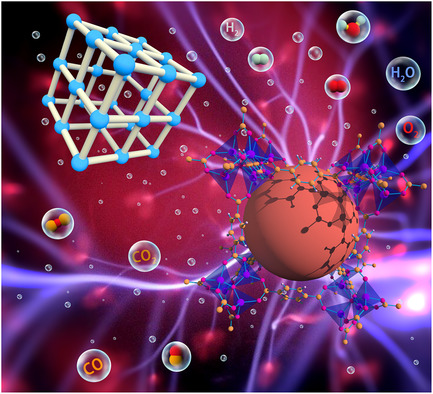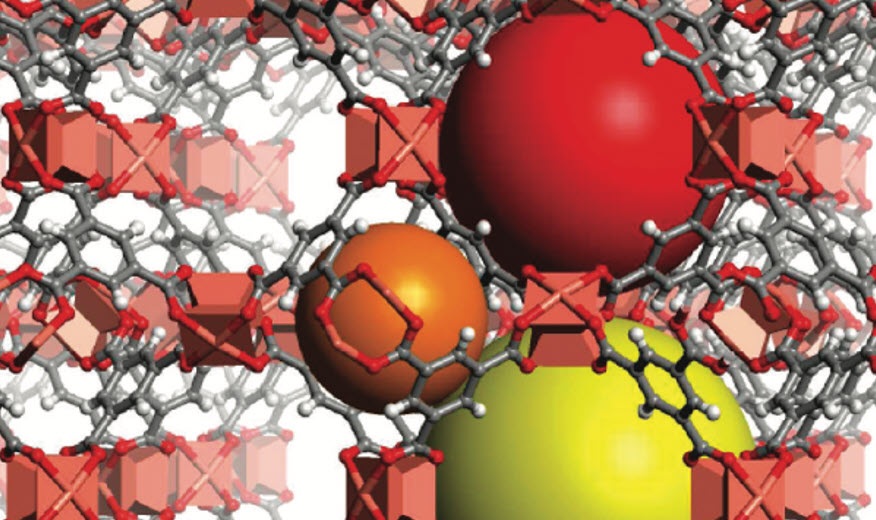Many novel materials are related to the achievements of a scientist who has been studying connections and the interactions between molecules for decades. Scientific society considers him as the main developer of a new branch in supramolecular chemistry called “Reticular Chemistry”.
In 1965, Omar Mwannes Yaghi was a new member of a large family of Palestinian origin who became refugees in Jordan. When he was 15, moved to the United States with the encouragement of his father. Knowing little English, he began classes at Hudson Valley Community College and later transferred to the University at Albany, SUNY to finish his college degree. Yaghi received his B.S. degree from the State University of New York-Albany (1985), and his Ph.D. from the University of Illinois-Urbana (1990) with Professor Walter G. Klemperer. He became a fellow at Harvard University with Professor Richard H. Holm, soon after that.
He is best known for pioneering in Reticular Chemistry, the science of building chemical structures from molecular building blocks. It is concerned with the linking of molecular building blocks (organic molecules, inorganic clusters, dendrimers, peptides, proteins,…) into predetermined structures in which such units are repeated and are held together by strong bonds. He is widely known for pioneering several extensive classes of porous crystalline materials, termed metal-organic frameworks, covalent organic frameworks, and zeolitic imidazolate frameworks (MOFs, COFs, and ZIFs). In 2015, he was awarded the Mustafa Prize for his outstanding contributions to the designing and production of classes of these compounds.

Yaghi developed this chemistry from fundamental science all the way to applications. He managed to design the structure of the frameworks, their functionality, and the pore environment and metrics to produce crystalline materials capable of storage and separation of hydrogen, methane, carbon dioxide, water, volatile organics, peptides and proteins. MOF can also be used in the catalysis of reactions leading to clean energy generation: conversion of methane to methanol, water to hydrogen and oxygen, organic cyclization reactions, and carbon-carbon bond-breaking reactions. He has also succeeded in demonstrating the use of MOFs to harvest water from the desert air, as well as pioneered molecular weaving.
It has been a long-standing objective in chemistry to make materials by design. The challenge is that linking building units together into extended structures invariably leads to amorphous materials, which defied design. Yaghi’s invention of MOFs turned this ‘dream’ into reality and made available a chemistry approach, which has led to the production of the most extensive class of materials ever made. The ability to fine-tune these materials nearly at will has made them important and widely practiced in over 1,000 academic and industrial laboratories worldwide. This has inspired legions of young scholars around the world to enter into chemistry and research new materials. He published over 250 articles, which have received an average of over 300 citations per paper. He is among the top five most highly cited chemists worldwide.

Yaghi’s achievements has been recognized worldwide and he has received several scientific awards for the past ten years. Following 2015 Mustafa(pbuh) Prize in Nanoscience and Nanotechnology, He has received TÜBA Academy Prize in Basic and Engineering Sciences (2016), the Royal Society of Chemistry Spiers Memorial Award (2017), the King Abdullah II Order of Distinction of the First Class (2017), the Japan Society of Coordination Chemistry International Award (2017), Albert Einstein World Award of Science, World Cultural Council (2017), Kuwait Prize in Basic Sciences (2017), ENI Award for Energy (2018), BBVA Foundation Frontiers of Knowledge Award in Basic Sciences (2018), and Wolf Prize in Chemistry (2018), Prince Sultan bin Abdulaziz International Prize for Water (2018), Royal Swedish Academy of Sciences Gregori Aminoff Prize (2019), Mohammed bin Rashid Medal of Science (2019), German Chemical Society, August-Wilhelm-von-Hofmann Medal (2020), Royal Society of Chemistry Sustainable Water Award (2020), Ertl Lecture Award, Fritz Haber Institute (2021), AAAFM-Nakamura Prize (2021), and VinFuture Prize for Outstanding Achievements in Emerging Fields (2021).
The building block approach he developed has caused an exponential growth in the creation of new materials having diversity and multiplicity previously unknown in chemistry. Yet, despite all that, this approach has paved way for enormous potential applications which are yet to be discovered. This weird and wonderful chemical world is literally in accordance with the definition, he offered for his coined term “Reticular Chemistry”: stitching molecular building blocks into extended structures by strong bonds.

